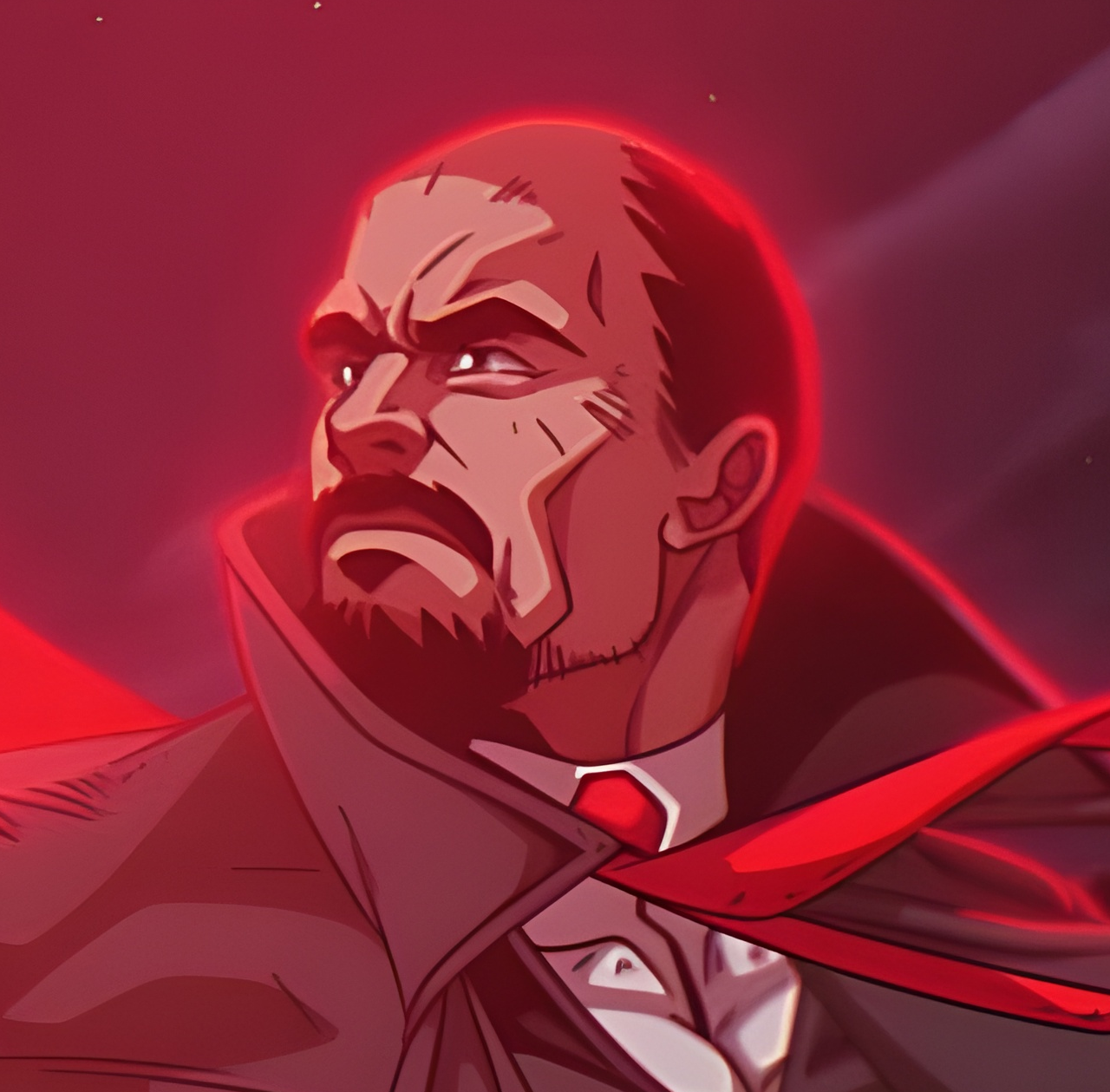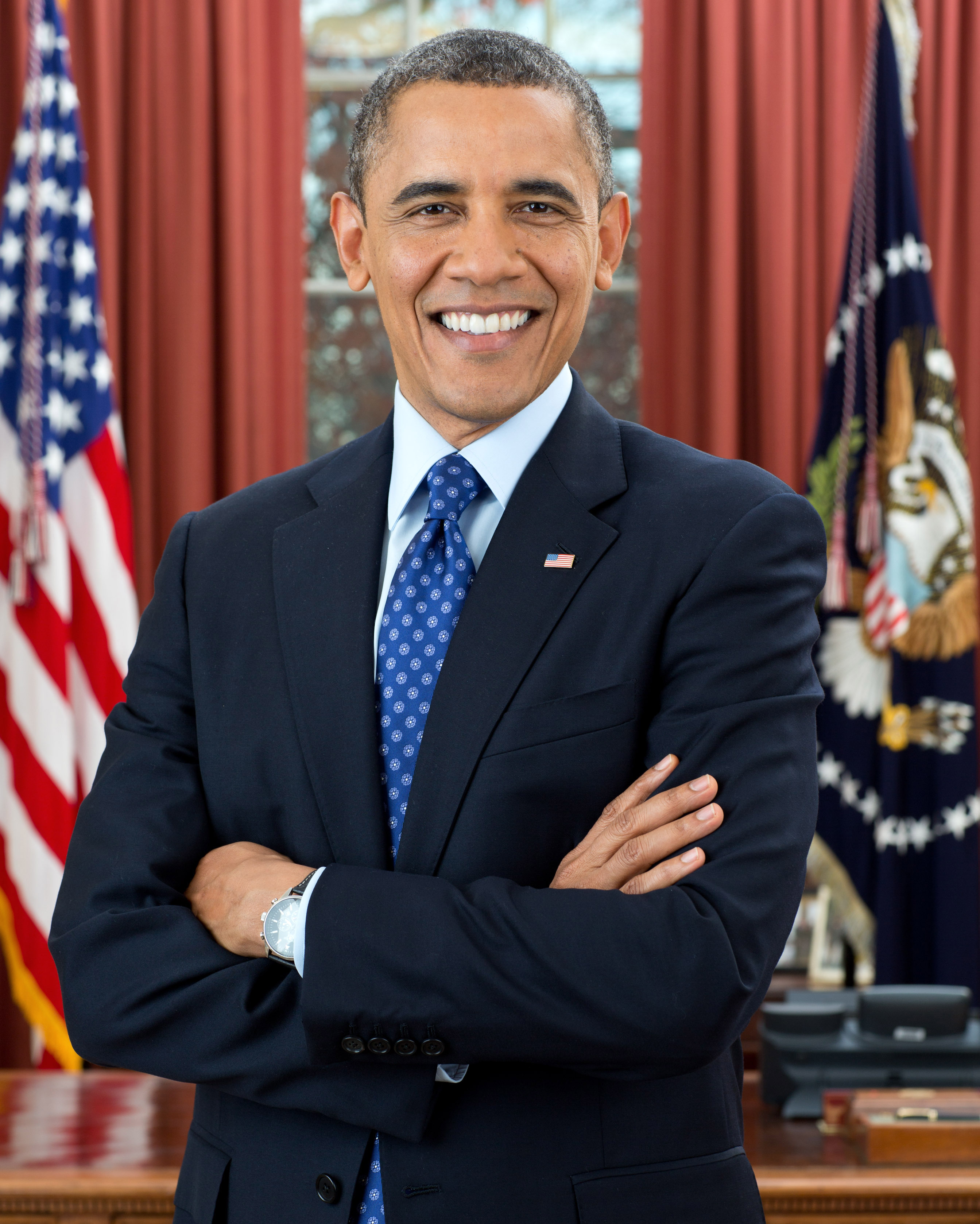Maybe as an experiment, let's try to understand each other's positions ITT and not have the same boring old arguments (because they're boring).
Edit - nice discussion everyone, thanks <3. I'm seeing a lot of responses from ML and not many from anarchists, but maybe I'm the only anarchist on this site lol
Anarchists get out there and do shit. It may just be an American numbers thing, but while anarchists went out there and fought cops for weeks during the summer of 2020, there was next to no abnormal mobilization by communist orgs in the US. Obviously there's nuance about theory and praxis, but goddamn were some of those nights in Portland or Minneapolis delicious, while PSL and CPUSA just marched and dispersed, if they did anything at all.
Be the change you want to see in the world, I guess. Nobody else is going to do this but us, regardless of tendency
I think that's a byproduct of many ML groups in the US unfortunately trying to operate as primarily electoral parties. My local PSL branch had some people run for city council. Might also be a byproduct of the newspaper focused school of organizing.
Also, might be a fear of getting infiltrated by feds again. PSL takes cop/fed infiltration very seriously, possibly too much. So that probably limits how much illegal stuff they wanna do.
That's a good point, I also think maybe anarchists efforts and groups tend to have a lower barrier of entry for baby leftists and newly radicalized people. Most anarchist projects I've been involved with (esp. mutual aid stuff) invite people to participate and help out regardless of their particular ideological tendency (as long as they're not fascists/chuds/assholes). That means people can jump in and start doing useful stuff without committing to a party line. This dynamic, of course, has it's own set of drawbacks, but I do think it's part of the reason why you see more anarchists out on the streets.
The infiltration angle is another good point - decentralized orgs can't be as easily shut down by co-opting/murdering/blackmailing/discrediting the leadership.
the newspaper focused school of organizing.
oh no, the trots are inside the party
I think tbh the ML orgs were essentially caught flat-footed by the summer of 2020, to put things charitably… but also those ML orgs, or at least the PSL, have doubled or quadrupled in size, in large part because of the summer of 2020 and the radical change in consciousness it brought. Their existence before was quite small, all things considered.
In terms of rioting and propaganda of the deed, it is also important to ask what an ML org would seek to accomplish by leading a riot when they are small and weak. A realistic assessment of the power that US ML groups hold —none— really points to a heavy repression and the complete dissolution of their party in the face of that kind of repression. In Denver, several PSL (and other) organizers were all arrested and slapped with kidnapping charges just for organizing a protest outside of a police station. It took a tremendous amount of resources to get those organizers out of jail and get the charges dropped, and some organizers were facing +50 years in prison.
It is an inarguable advantage anarchist organizing has, that the state essentially cannot repress what is formless, or nearly formless. Individuals can be harassed, imprisoned, or intimidated, but there is no central org to bring down. And it is certainly true that the only minor concessions that were made in the summer of 2020 were in response to direct action by the masses of people led by anarchists. But then, what change was made and has it lasted? What is the goal of any action, direct or otherwise? I think the MLs generally see that challenging the state directly will only be fruitful when their own size and relative power has grown, and political consciousness has changed such that the public will largely view their actions as legitimate and correct, and they would be correct in thinking they are a long ways away from that.
Ok? All of this can be true alongside my original point. Nobody is bringing political change rn, but some people went out, propagandized through rioting, mutual aid, and cophating, and some people did not
That's been something I've thought about a lot. That has to be why you see such differences in organizing strategy.
That is temporary. Its kind of hard to organize again when your entire movement was ruthlessly ripped apart for decades
I don't disagree! I was just thinking "what tendencies do I like in anarchists," and that was one. If only Americans weren't deathly allergic to the words "communism" and "collective action"
I think this is a really important point. Americans largely believe (not incorrectly) that the government doesn't do anything which is why we're so anti-government. At the same time progressive, socialist, and communist organizations are almost all trying to win concessions from the government. We could instead just start doing our own shit and when the state inevitably shuts it down suddenly all those people we were helping get fucked over and now have an actual political reason to hate the state instead of thinking the state just kind of exists on the periphery. We could be actually affecting the world around us rather than asking the state to do it on our behalf.
Also does anybody have any info about PCUSA
dissolving into thesplit that formed the ACB? Weird shitY'all gotta get a new Twitter, there are international parties following the old account
https://twitter.com/communists_US?t=6yFRjtCzyD7_VcvCaDv9jw&s=09
There are things happening behind the scenes to remedy the theft of the party's platforms.
Our international department is the organ that communicates and maintains relationships with other fraternal parties.
Twitter is simply an online platform for distributing agitprop.
I was actually just about to point someone to the PCUSA last week, since they're wary of the CPUSA and at least our local PSL. I looked it up to see if it was still a thing or not, and saw the whole thing with the website, so I didn't really know what to think about it lol
The Midwest twitter-posting wreckers were members of the media department and had stolen most of the credentials to online party property and the online and offline identities of everyone in the party.
They stole what was never theirs and are lashing out by throwing every accusation they can to smear the party in hopes to legitimize their sectarian split of 20 terminally online armchair ultras.
I kind of figured it was something like that. If any of the claims actually had some substance, I assume it would have come up elsewhere at this point.
I hope it doesn't hurt the party too much. I don't really have the time or resources to really commit to party work right now, but I've kept an eye on PCUSA for a while, it really looks like a good party from what I've seen.
Thanks! I'll send it along when I talk to them next
Appreciate the update comrade, I'm glad to hear the party as a whole remains
As an anarchist, something that has always frustrated me within my own ideology is any real actionable theory of change. It's always been my belief that communism and anarchism are the same; a way for humans to organize socially without the coercion of hierarchies. Marxism-Leninism, is, to me, a theory of change to bring forth the ideal society.
I’m a Marxist-Leninist who sees it exactly the same way. True communism is inherently (and I would say obviously) anarchism. The entire left ideological debate is only on how to reach that point.
The entire left ideological debate is only on how to reach that point.
This I disagree with. Marxism is an ideology but also a tool box to develop a path towards communism. Sure, no definite answer, because it's still philosophy.
Anarchists by and large go by moral philosophy. A completely moral society can be theorised. But the anarchist philosophy can't develop economic critiques of society or of the development of society. Marxist economics are a thing, anarchist economics I've never heard of.
What I mean to say is that the disagreement isn't in "how to get there". It's in the basis for both ideologies, in their philosophy : moralist idealism & dialectical materialism.
Personally I celebrate the rightful abandonment of diamat from the 50's onward (IMO all AES have been failures so far), but from Marcuse to Zizek, there's been no grand milestone in (post)Marxist political philosophy - nothing that new communist parties may be centred around. Anarchist political philosophy nowadays seems to be mostly culture critique (e.g. Fisher) , and as always descriptive rather than prescriptive. Nothing to draw positive political programs from either.
But the anarchist philosophy can’t develop economic critiques of society or of the development of society. Marxist economics are a thing, anarchist economics I’ve never heard of.
Not an anarchist but this is entirely disingenuous on your part. You might disagree with anarchist economics or find that they're underdeveloped or whatever but to say it doesn't exist is just wrong.
That's my bad, I'm not familiar with it. As I said, "I've never heard of em". Though Marxist economics are irrelevant nowadays, there are still familiar names like Andrew Kliman, Paul Cockshott, David Harvey, Yanis Varoufakis, and Richard Wolff.
Do you have any suggestions of modern anarchist economists for me to start with?
It was this realization that pushed me, an ancom at the time, towards ML theory. The goal hasn't changed, only the strategy.
For example - I'm an anarchist but I'm deeply skeptical about all the negative propaganda around AES states that you see in mainstream western media. I mean, I've been skeptical for a while, but talking to MLs and reading things they've suggested has really helped me understand the crazy extent to which people in the west are indoctrinated and lied to about AES countries.
Actually Existing Socialism. Cuba, China, Venezuela, etc.
Im a ML and really like this tbh. Very fair critique and I definitely have thought this way in the past as a former anarchist myself.
I think the biggest thing that changed for me was seeing the development of Marxist-Leninist states as the next stage of development away from capitalism and the creation of true state-capitalism. Obviously this is not the end goal, but it’s greatly preferable to the bourgeois state. What brought me to being a ML was not what I’d call “settling” but something more along the lines of “fuck it, it’s the best way we have to defend a revolution and marxist thought from the bourgeois. It may not ever wither away and if it doesn’t, fuck it and overthrow it, but if it does wither away that’s a W”
Should the eventually state wither away on its own, that would be fantastic. If not, we will see the next development exactly along the lines of Marx’s predictions, with the growth of socialism continuing to sprout from the rotting corpse of capitalism, resulting in the overthrow of said state-capitalist regime and establishing whatever form the much more class conscious working class sees fit to bring about socialism and eventually communism.
Exactly! It is my job as a socialist to do what I think is best to help carry on and protect our grand humanitarian project, and I don’t see a better way of doing that than defending the only states which as a bare minimum tell their people the truth about socialism and protect them from some of the worst barbarism of capitalism. At least, this is the hill I am willing to die on.
:chefs-kiss: this is how mi'lady earned that crown (in a fully directly democratic system of nobility where noble titles can be revoked at any moment of course) :left-unity-2:
I guess I don't know enough about the Anarchist conception of Hierarchy. I don't want to go all, "MUH HUMAN NATURE," but as I understand the word, I think hierarchy DOES naturally and, potentially even positively, form in many human relationships. We can make normative claims about the form we want it to take and measures of democratic accountability to keep it from getting out of hand, but I can't imagine a world where the wisest, most knowledgeable, or most capable people aren't given some amount of acknowledged power to be experts/leaders of human affairs.
Even in small and relatively egalitarian groups you see power dynamics form. These can be done more or less equitably, but they cannot, it seems, be avoided. It even seems disadvantageous to me to try and suppress it entirely as having recognized expertise, wisdom, or decision making capacity does a whole lot for keeping a group cohesive and effective. The larger the group, the more it seems to rely upon formal structures for recognizing and enabling hierarchy to maintaining cohesion and effectiveness and resolving internal conflict or responding to external challenges. I think with this can and should come formal mechanisms for accountability - but I don't think hierarchy is inherent oppressive. If anything, the ability to effectively organize human activity to accomplish tasks and free people from the limitations of the natural world: disease, pain, drudgery and toil in our work, existential dread and the problems that come with consciousness itself; all of these kinds of things can be better overcome, managed, and solved with at least a little bit of hierarchy (so far as I understand it) managing our efforts along the way.
When I picture communism I guess I don't recognize a world without hierarchy, but instead one where productive decisions are made completely democratically. That may mean the realm of economic influence is more equitable, and so too will become many of our social institutions (as base affects super structure), but matters of knowledge and wisdom seem like they'll still require and benefit from hierarchy to appropriately recognize and exclude bad actors, preserve knowledge effectively, or coordinate large efforts.
As soon as you create institutionalized positions of authority you ensure that they will eventually no longer go to the “the wisest, most knowledgeable, or most capable” but instead to power-seekers
This is a great anarchist critique of MLism (and basically any institution). I would even add to it -- if you are able to create a legitimate, actual meritocracy, you're likely to get at least a well-intentioned actor who will bend that system back towards something more corruptible if only to keep doing things that may be genuinely good. Over time and personnel changes this could open the door for power-seeking bad actors.
If we're talking about fundamentally reshaping society, though, I think long-term we could get to a point where a "real" meritocracy could work. You could make leadership positions truly thankless jobs, even at the highest levels (strip away most of the perks, prestige, and little displays of power). You could have qualified people drafted for those jobs for fixed, non-renewable terms. You could have recall votes a possibility for every position, you could have "real" journalism (i.e., not for profit, with access not determined by those in power), you could have a deep cultural taboo against ambition for ambition's sake, you would of course have a much improved education system that among other things swaps capitalist indoctrination for leftist political education.
"We could run an actually good organization at national or global scale" is not too big of a dream compared to anything else leftists discuss.
It's not necessarily a blanket rejection of authority, just a condemnation of the forms of authority that end up having a stratifying and totalizing effect- that is, when someone is considered to be an authority that all other authorities are subservient to, when some people are seen as categorically more valuable or more deserving than others, or when as an individual you are put and kept in a lower category regardless of your volition and efforts.
I can’t imagine a world where the wisest, most knowledgeable, or most capable people aren’t given some amount of acknowledged power
The great thing here is that wisdom, knowledge, and capability aren't one thing. There are lots of different ways to be wise, lots of different fields to be knowledgeable in, lots of different skills to be capable at. Instead of thinking about a comrade, "Frubbins is the wisest", we should be thinking "Frubbins has outstanding wisdom and eloquence in motivating and inspiring people".
We can take things like the theory of multiple intelligences from psychology, and separate political domains from First Nations cultures, and a lot of other stuff, and start to get an understanding of how people can develop themselves for various proficiencies, without having to "rank" the skills or the people. There will still be a hierarchy within each skill or domain, but it won't extend beyond that field. Between the two of us, I might be the better teacher and you might be the better event planner and meeting facilitator; these don't need to be stacked up against each other.
I sometimes wonder if this is partly because the US government invested so many resources over so many decades into domestic anti-communism efforts, rather than anti-anarchism efforts. Like, I've noticed in discussions with "normal" people in the US that in many cases they'll be surprisingly receptive to anarchist ideas, but will immediately shut down when the scary word "communism" comes up.
"the great work is to get as many people through this mess as possible. for now i think that means mutual aid, local organizing, and resisting state authority. if nothing else we’re all in this together"
Amen, comrade.
Yeah but that isnt really contrary to lenninist theory when you get down to it since judging the state as necessary under the dictatoriship of the proletariat as a manifstation of class opression doesnt mean that you legitimize the concept of state itself as something desirable.
A lot of baby MLs probably go way too much on that direction but the theory itself isnt in agreement. Like my favorite anarchist , Vladimir Lenin said
"So long as the state exists there is no freedom. When there is freedom, there will be no state."
Simple as the state has a great capacity to harm people. States are necessary in a world with international competition. The capacity to harm innocent people is directly tied to capacity to harm bad actors who would seek to destroy a socialist project. I pray for a world that does not require states. But I've never seen anything like it.
Matt Christman's criticism of Graeber and Wengrow's "The Dawn of Everything" does a decent job of explaining why all these, honestly beautiful and inspiring, rather anarchist societies universally fell to people with an advanced state apparatus for violence. You cannot defend yourself from violence with a system of non-control. Any examples to the contrary are an exception, usually of a people who are unusually aligned toward resisting by an awful outside force. Yes a lot of farmers and forest-living people can kill invaders, but they cannot maintain control and they cannot organize to resist other forms of invasion. Thus the state.
I am not a fan of Stalin. But he was absolutely the man for the job at that time and he performed excellently. We live in a world of terror and it sucks. I want to live in a world where I can just grow potatoes in the woods and voluntarily associate with nice people who have wool or cotton, but that is not this world. Maybe someday we'll get there, but there will always be the threat of someone with the exploited surplus value of a gun to fuck it up.
I love anarchists. I don't even think they're naive. They understand a fundamental problem of society. They want what's best. And they perform an essential duty to make things better by destroying the existing state and its apparati. But fundamentally it is not sustainable. Regrettably, coercion and violence are necessary to sustain a project contrary to capitalism.
i agree with this but there may be future conditions that make states different from what they are now.
i used to identify more or less ancom and see anarchism in modern conditions as an attempt to speedrun communism which is absolutely admirable but like you said it can be easily crushed by state power.
i do think there may be future conditions where state power could be circumvented completely. crazy sci/fi hypothetical stuff like being able to take control of a non-state apparatus such as a friendly artificial superintelligence or if decentralized manufacturing and power generation becomes viable or common. or more likely neoliberalism or whatever we are doing now continues to weaken state power to the point where anarchist solutions to anticapitalism become the most likely to arise. or fragmentation/weakening of global systems due to climate change or catastrophe causes state power to be so distorted that a bottom-up approach becomes the most efficient becaus there is simply no state to seize nor even be crafted from the ashes. some of these scenerios may imply a severe reduction in technology and living conditions where an ancom solution simply becomes a way to stave off a return to feudalism and provide starting point to rebuild into an unknown future.
maybe i'm just a go-with-the-flow marxist at the moment but i do think it's good to have a full set of tools and that includes everything from strict ideologically principled marxist-leninism to anarcho-communism and every conceivable synthesis and adaptation in between or in the future.
I want to live in a world where I can just grow potatoes in the woods and voluntarily associate with nice people who have wool or cotton
We will have that, but it will be you scavenging for water and food during the climate change apocalypse 50 years from now at best.
(I’m a Marxist-Leninist)
Maybe a hot take, but in the baby stages of organizing your community and workplace (especially speaking about organizing in the west) there really shouldn’t be any fundamental differences between how MLs and Anarchists organize. I don’t say this just because we can’t afford to let ideological divides exist, but because at the core of building class consciousness and a revolution we both really need almost all of the same working class institutions in place to successfully revolt against a capitalist state.
Further, to do real dialectical materialism you explicitly can’t be ideologically dogmatic and must methodically apply the best methods of organization through real, thorough study of your community. Mao had some absolutely banger quotes talking about just this
From Mao in “On Contradiction”:
There are many contradictions in the course of development of any major thing. For instance, in the course of China's bourgeois-democratic revolution, where the conditions are exceedingly complex, there exist the contradiction between all the oppressed classes in Chinese society and imperialism, the contradiction between the great masses of the people and feudalism, the contradiction between the proletariat and the bourgeoisie, the contradiction between the peasantry and the urban petty bourgeoisie on the one hand and the bourgeoisie on the other, the contradiction between the various reactionary ruling groups, and so on. These contradictions cannot be treated in the same way since each has its own particularity; moreover, the two aspects of each contradiction cannot be treated in the same way since each aspect has its own characteristics. We who are engages in the Chinese revolution should not only understand the particularity of these contradictions in their totality, that is, in their interconnections, but should also study the two aspects of each contradiction as the only means of understanding the totality. When we speak of understanding each aspect of a contradiction, we mean understanding what specific position each aspect occupies, what concrete forms it assumes in its interdependence and in its contradiction with its opposite, and what concrete methods are employed in the struggle with its opposite, when the two are both interdependent and in contradiction, and also after the interdependence breaks down. It is of great importance to study these problems. Lenin meant just this when he said that the most essential thing in Marxism, the living soul of Marxism, is the concrete analysis of concrete conditions. Our dogmatists have violated Lenin's teachings; they never use their brains to analyse anything concretely, and in their writings and speeches they always use stereotypes devoid of content, thereby creating a very bad style of work in our Party.
[Click ⬆️ to read the quote, this line is just to make reading this comment more aesthetically pleasing]
When I see western MLs being condescending or dismissive towards anarachists I can’t help but get pissed off. They constantly ask these anarchists “where is your successful revolution? What has anarchism accomplished?” to which all I can think to say is “where is YOUR successful revolution, and what have MLs in the west accomplished?”
In the same breath these MLs will praise Mao though, and they love Lenin, which is funny because if they did any amount of close reading of Mao/Lenin’s texts they’d see something completely contradictory to their personal dogmatic approach to fostering socialism. Lenin and Mao as we know them would not have ever existed, and their revolutions would have never have been possible without the anarchist factions of leftists in their early development both organizationally and ideologically. These anarchist influences are especially obvious in Mao’s writings and ideology, which should be no surprise since anarchism was the dominant faction of leftist intellectualism in China for quite some time. The best dunk on dogmatic MLs of all time came from Mao himself
Also from Mao in “On Contradiction”:
As regards the sequence in the movement of man's knowledge, there is always a gradual growth from the knowledge of individual and particular things to the knowledge of things in general. Only after man knows the particular essence of many different things can he proceed to generalization and know the common essence of things.
When man attains the knowledge of this common essence, he uses it as a guide and proceeds to study various concrete things which have not yet been studied, or studied thoroughly, and to discover the particular essence of each; only thus is he able to supplement, enrich and develop his knowledge of their common essence and prevent such knowledge from withering or petrifying. These are the two processes of cognition: one, from the particular to the general, and the other, from the general to the particular. Thus cognition always moves in cycles and (so long as scientific method is strictly adhered to) each cycle advances human knowledge a step higher and so makes it more and more profound. Where our dogmatists err on this question is that, on the one hand, they do not understand that we have to study the particularity of contradiction and know the particular essence of individual things before we can adequately know the universality of contradiction and the common essence of things, and that, on the other hand, they do not understand that after knowing the common essence of things, we must go further and study the concrete things that have not yet been thoroughly studied or have only just emerged. Our dogmatists are lazy-bones. They refuse to undertake any painstaking study of concrete things, they regard general truths as emerging out of the void, they turn them into purely abstract unfathomable formulas, and thereby completely deny and reverse the normal sequence by which man comes to know truth. Nor do they understand the interconnection of the two processes in cognition– from the particular to the general and then from the general to the particular. They understand nothing of the Marxist theory of knowledge.
When I started reading Mao, I was amazed at how much of the mass line particularly seemed like a manual for practical anarchism
Mao’s works are criminally underrated. He does such a good job of providing a concrete example of how learning from the great wisdom of Lenin and Stalin in their hindsight of the October Revolution, in addition to Marx and Engels (and let us not forget the many anarchist intellectuals who influenced Mao as well, especially in his early years) all helped in carrying out a successful socialist revolution and an anti-colonial war simultaneously. Not to mention, we also get a window through Mao’s writing of nearly 5 entire decades of an active account of fostering the development of socialism from early organizing through anti-feudal wars, through civil war, through anti-colonial war, through to a victorious socialist revolutionary war, and post-war state function. Just such a valuable archive that reaches so many different topics and scenarios.
ML's grasp on antiimperialism (and geopolitics in general) is way firmer than 90% of anarchists'. Anarchists have to understand (and at the end of the 90's-start of the 00's they seemingly did) that global capitalism is built around the United States so it should be the priority to bring it down, and that saying this is not simply saying "america bad" but "in the system that is called global capitalism the #1 power that will do anything to quell any kind of sizable leftist movements in blood, regardless of it's tendency, is the United States so it's essential to strip them of the power to do this in order to establish anarchism/communism."
I don't agree with ml's that the fall of the US would bring us that closer to the goal they think (thinking that Russia is honest about multipolarism and wouldn't try to place itself in the place of global hegemon is ridiculously naive imo), but they are absolutely right about that bringing about the collapse of the States should be the goal of every leftist.
thinking that Russia is honest about multipolarism and wouldn’t try to place itself in the place of global hegemon is ridiculously naive imo
Matt Cushbomb critiqued the idea of multipolarity along these lines recently, basically pointing out that, even with a defeated/defanged US, Russia will inevitably clash with China over their developmental models, continuing the danger of nuclear conflict. Principled anti-imperialism should be just that, based around principles, rather than a permanent allegiance to something like BRICS which, while useful under American hegemony, is riddled with contradictions
I don't know who doesn't acknowledge that, but I gotta say: The RF is way easier to fight than the USA. China will undoubtedly win any sort of conflict with them.
Any conflict, except for the kind that nobody wins (except for :posadist-nuke: )
Maybe, but its also easier to flip russia than the USA. Russia has a strong Communist past, and also a strong existing Soviet sensibility. China could easily nudge that into a good movement. The real problem I think would be India or Brazil. But even those each have pretty strong leftist movements that are at least sympathetic to China. The USA has no such thing, and is the strongest fascist state in existence, with a firm hold on its brainwashed populace.
Matt Cushbomb critiqued the idea of multipolarity along these lines recently, basically pointing out that, even with a defeated/defanged US, Russia will inevitably clash with China over their developmental models, continuing the danger of nuclear conflict.
You can pretty much throw any critique of multipolarity out the window if it comes from an American.
That party is corruptible, and may not act in workers best interest. I think only cuba and maybe dprk dodged deviations, so there is low probability of escaping that (and that’s due to Fidel living long enough). I.e. first gen revolutionaries are aware of what they are doing/what was before, second gen however are shaped by new reality without/reduced class conflict, and may attract unwanted elements (or just breathtakingly naive like gorby).
Unfortunately we don’t know whether anarchist form is stable on that long horizon as well. Also modern weaponry problem is highly concerning for decentralized communities in general.
Edit: also antifa where I’m from is predominantly anarchist, so hats off to them :rat-salute-2:
Out of curiosity, what do you think of examples like Rojava, or the Zapatistas?
Rojava is dependent on usa for weapons (exemplifying weaponry issue), and short-lived for now. Zapatistas are great and prolly longest surviving, however mexico is not exactly modern weaponry country, and capital has not been very interested in that region. But you are right, ezln is probably best case for long form anarchist resistance, they’ve started in 70s, and seemingly they change leaders (or generations, if more appropriate) without abandoning principles
Also modern weaponry problem is highly concerning for decentralized communities in general.
Would you say it's a problem of the weapons, or a problem of the size/integration of the fighting force?
Many revolutions have been won with little more than rifles. I would also hold that there's a cost-benefit analysis going on for capitalist forces that compares the potential revenue from a geographic entity with the economic cost of overrunning whatever socialist form controls that area. I'm open to the idea that bourgeois nations and their militaries are irrational and reckless in their attempt to stamp out socialistic forms but my current understanding is that they mostly aren't.
no matter what happens i sincerely hope we are never killing each other again. podcasting feds pretending to be anarchists are still throwing rage filled tantrums about 1930s spain to divide us. meanwhile, streaming feds pretending to be MLs are doing everything they can to divide us by making baby leftists associate anything even smelling like communism to reactionary social bullshit and absolutely chuddery. and always fascists trying to catch the nascent anti-capitalist by selling them the lies of antisemitism. we are being assailed from every direction. big $ being spent.
you know they are starting to fear us when you see more and more money being sunk into what we see as hilariously bald faced attempts to divide us.
either way the future is synthesis with material conditions we can't possibly predict. the principled left, whatever tendancy, are still together seeking out a classes, moneyless, stateless society as end goal and we'll all learn from each other and adapt to the material conditions what is needed to overcome this beast as it starts to sputter, seize, and enter it's most dangerous phase.
:left-unity-2: :left-unity-3: :left-unity-4:
I have to say, Anarchists have a more firm understanding of Gender, Sex, and general personal relations. What I mean by that is how Anarchists, even back then, were more accepting of our LGBTQ comrades when we weren't. ML countries are getting better, but I feel thats no excuse to the pain that those oppressed had to suffer before that. Marxism Leninism is freedom for the workers, and it should include them from here on out. They have a lot of knowledge on the subject.
Anarchists have some respectable critiques of MLism, and vice versa. Its nice to have a political frenemy with whom you can take seriously on some matters. A reason I find MLism good as well is that it takes pieces of anarchism "like the council soviets" and spread them onto a bigger scale.
But I gotta say, around 70% of Anarchists need to learn what politics are in the first place (Thankfully none of those on this site). I keep seeing movements fall to liberalism and Co-option (not that ML ones don't fall to cringe, but this is about anarchists). But they have a shotgun strat of organizing, there are so many that pop up, that some of them will be good.
Anarchists tend to be chill. Larpy shit exists in all tendencies, but I feel you can find anarchists on a person by person basis who are less cringey
Yeah, I know a lot of anarchists in real life, and the majority were pretty chill. I've met some awful anarchist LARPers too, although I think one was a cop - he started showing up to meetings out of nowhere and loudly advocating that we do a bunch of illegal shit, so he was either a cop or a dumbass with no concept of security culture. I've only met a couple MLs in real life, one was super chill and smart (and cute tbh), and the other was, well, not the best representation lol. He showed up to some iraq war protest stuff and basically told us we needed to listen to him because "he was the vanguard", lol.
he was the vanguard
god western MLs need to find some fucking grass
Anarchists: Better organizers, more mutual aid, show more solidarity, better action, mobilize quickly, truly have their hearts in it. Projects are ethically agreeable and fast to get off the ground, but have difficulty lasting a long time.
MLs: Understand the nuance of history, push back against imperialist exaggeration and slander against nations like China and the USSR, don't martyr themselves when it's strategically optimal to survive. Projects are slower to get off the ground, and possibly more ethically compromised, but last longer.
idk, i hope i'm not off base with any of this. this is mostly my instincts talking
Seems like a fair assessment to me. As an anarchist, I do think MLs tend to have a more nuanced/realistic analysis of history and global power dynamics, which I admire.
Ethics are useless when the enemy is themselves a monster
not an absence of them, but everything is a grey area
It's kind of become a meme at this point that anarchists want to abolish bedtimes etc. but I've also seen actual critiques of and proposals for family relations and childhood. Marxists are supposed to be for the abolition of the family but I mostly see anarchists doing all of the critique.
Something that annoys me that I see on places like communist theory reddit is the disdain for a vision of the future by communists REALLY into making sure they understand every word of Marx. Someone asks, "what will communism be like :)" and you give some ideas while acknowledging that Marxism is a materialist philosophy and not just a wishlist. Then some communist replies to you with several paragraphs calling you utopian and telling you to read Grundrisse. So yeah, I don't see anarchists and utopian socialists doing that. :blob-no-thoughts:
I guess abolishing bourgeois familial relations is a post-revolutionary question? Like in Engels' Origin of the Family he traces how familial relations change with a certain economic system. Maybe because anarchists aren't concerned with tactics like the vanguard and the DOTP (they want an immediate shift from a capitalist to a communist society), its of more importance to them to focus on how communist society will change things rather than how we will get to itl.



















